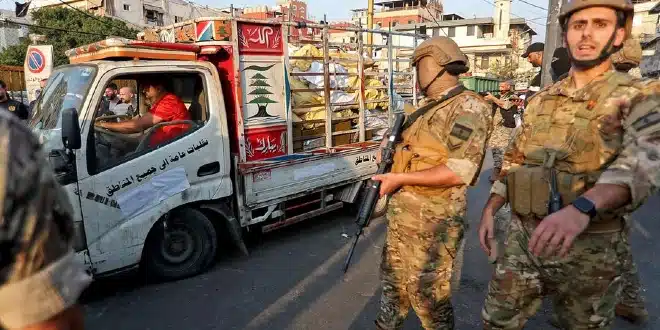At a Free Patriotic Movement (FPM) dinner in al-Zahrani, party leader Jebran Bassil delivered a wide-ranging speech touching on Lebanon’s security, the role of Hezbollah, and the question of Palestinian arms in refugee camps. His remarks combined themes of national unity, resistance, and the demand for a stronger, unified state.
Martyrs and the Defense of Lebanon
Bassil began by honoring those killed in southern Lebanon, declaring that “every martyr who fell in the South did not only fall in defense of the South, but rather entire Lebanon.” He stressed the interconnectedness of the country’s regions, saying: “When the South falls, the capital Beirut falls, and when Beirut falls Mount Lebanon will fall.”
By framing sacrifices in the South as a defense of the entire nation, Bassil sought to reinforce the idea of collective responsibility in protecting Lebanon from external threats.
On Peace with Israel
Turning to Lebanon’s fraught relationship with Israel, Bassil acknowledged that peace, in principle, should not be rejected outright. “We do not reject peace with anyone, seeing as it is not made between friends but rather between foes,” he said. But he emphasized that such peace must come with conditions: “Let no one feel ashamed when they say they want peace, on the condition that it comes with dignity and rights. We reject surrender.”
His comments reflect a longstanding position in Lebanese politics: openness to dialogue, but only if national sovereignty and territorial rights are respected.
Hezbollah’s Weapons and National Sovereignty
Bassil also addressed the contentious issue of Hezbollah’s arsenal, one of the most divisive subjects in Lebanese politics. “We want one army, one arsenal of arms, and arms monopolization,” he declared. He argued that the security landscape has changed and that defending Lebanon requires new approaches beyond the armed presence of Hezbollah or other groups.
By calling for a unified military under state authority, Bassil implicitly urged Hezbollah to reconsider its role as an armed actor outside the state framework.
Palestinian Arms and Disarmament
Bassil commented on the recent symbolic handover of a truckload of weapons from the Burj al-Barajneh Palestinian refugee camp. The Lebanese government and the Fatah Movement described the move as the beginning of Palestinian disarmament.
Bassil, however, mocked the gesture: “Who are you trying to fool? Is this how you want to get handed over the Palestinian weapons?”
In a sarcastic tone, he added: “If this is how you want to receive Hezbollah’s arms, I wish you success. It’s a good start.” While supportive of the principle of disarmament, Bassil dismissed token steps as political theater, saying the Lebanese state deserves genuine action rather than “staged farces.”
What This Means
Bassil’s speech underscores the delicate balancing act in Lebanese politics: honoring resistance in the South, keeping the door open for a dignified peace with Israel, and pushing for a stronger state monopoly on arms. His comments also highlight frustrations with half-measures on disarmament, whether in Palestinian camps or with Hezbollah.
Ultimately, his remarks reflect the FPM’s attempt to position itself as both a defender of national dignity and a party committed to strengthening the Lebanese state.


